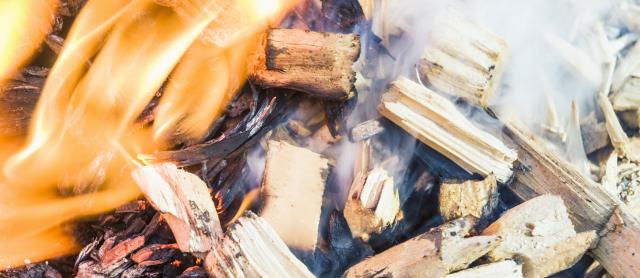Mulch fires can cause significant property damage and pose serious safety threats to your property and can result in significant costs to your business. Explore the risks of mulch fires, provide practical prevention strategies, and emphasize the importance of educating property managers and landscapers about fire safety.
What is a Mulch Fire and it's Risks
Mulch fires are a threat to both residential and commercial properties. Understanding the common causes and contributing factors is crucial in learning how to prevent mulch fires. Discarded cigarettes, sparks from outdoor grills or fire pits, and improperly discarded fireworks are frequent ignition sources. These can easily set dry mulch ablaze, leading to dangerous fires. Proper disposal of cigarette butts and safe use of outdoor fire sources near mulch beds are essential preventive measures.
Weather conditions, such as high heat and low humidity, can dry out mulch, increasing the risk of spontaneous mulch combustion. The type of mulch also plays a role; materials like wood chips or shredded bark are more susceptible to ignition than alternatives like rubber or stone mulch. Adopting fire-resistant landscaping practices, such as creating non-combustible zones around structures, can significantly reduce the risk of mulch fires spreading to buildings. Regularly inspecting and maintaining mulch beds, removing debris or dead vegetation, and watering regularly is also crucial in preventing fires.
Best Practices for Mulch Fire Prevention
Proper mulch installation techniques are key to preventing mulch fires. When applying mulch, ensure the layer is no thicker than 2 to 4 inches. Excessive mulch depth can trap heat, increasing the risk of spontaneous mulch combustion. Spread the mulch evenly, avoiding clumps or mounds that could create hotspots.
Selecting fire-resistant mulch materials is another critical step. Opt for non-flammable options like rocks, gravel, or rubber. These materials are less likely to ignite and can help slow the spread of flames if a fire does occur. Maintaining a safe distance between mulch and potential ignition sources is also essential. Keep mulch at least 18 inches away from buildings, fences, and other structures to prevent sparks from igniting it. Additionally, keep mulch away from heat sources such as barbecue grills, fire pits, and smoking areas.
Educating Property Managers and Landscapers
Educating property managers and landscapers is vital for effective mulch fire prevention. Training staff on fire safety protocols ensures they are equipped to handle potential fire hazards. Develop protocols specifically tailored to landscaping projects, outlining necessary precautions, equipment, and procedures to minimize fire risks. Include guidelines for proper mulch placement, irrigation, and maintenance.
Regular inspections and maintenance are also essential. Periodically inspecting landscaping projects allows for the identification of potential fire hazards, such as overheating equipment or improper mulch placement. Promptly addressing these issues can prevent mulch fires before they ignite.
Submitting a Claim to GNY
To submit a claim after a fire-related loss refer to the guides here.
This material is informational only. It is not intended to be, and is not in fact, a statement, in whole or in part, of GNY’s underwriting guidelines. Nothing said here amends or affects the interpretation, application, or both, of the coverage provisions in any GNY insurance policy; nor do the statements made here constitute a representation that insurance coverage exists for any loss under any GNY policy. Coverage depends on facts and circumstances of each individual claim or loss, the applicable laws, and the policy provisions in the GNY insurance policy.
